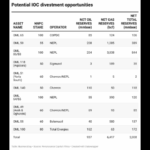Technology and innovation have long had the power to make skills and sometimes entire industries obsolete and redundant. Many people today still remain skeptical of the latest developments in technology such as artificial intelligence, robotics, machine language and other recent innovations. They fear that their jobs and livelihoods will be at risk. However their fears are not unfounded. Over the past decades, we have seen technology make skills and jobs obsolete.
Typists were once attractive in offices and organizations. They ensure that written communications are delivered professionally, in a timely and organized manner. The first personal computers diminished their influence, and today mobile devices have consigned that useful skill to the dustbin of history. I don't know of any organization today that needs a typist. Companies making typewriters have since shifted gears and joined the innovation wagon or closed shop.
Like typists, switchboard/receptionist call routing is no longer a desirable or marketable skill. Direct dial extensions, mobile phones, VoIP systems, Google Voice, auto attendants and IVR systems have all made the switchboard receptionist job dated. Added to this is the fact that today, an increasing number of internal and external communications by organizations and individuals occur online without the need for a phone.
I'm sure we all remember Nokia, which was once the world's largest phone maker, running the Symbian operating system loved by millions. Then came the wave of Android operating systems. Android was free, it was flexible, allowing rapid innovation and app development. The world immediately adopted Android like a fish took to water. Nokia failed to understand the room and fell by the wayside in no time, losing its lofty position to new brands like Samsung and others. It was a similar story with BlackBerry, which once dominated the business phone market with BBM and QWERTY phones. Like Nokia, it became too obsessed with its own image in the mirror and failed to realize that the Android train was picking up its passengers. Eventually BlackBerry was forced to exit the phone business. That's what technology and innovation do.
Introduction to Atlas
ChatGPAT Atlas, OpenAI's recently released browser, may shape up to test the resolution of traditional browsers like Android, Google Chrome, Opera, Edge, Firefox, Safari, etc. Atlas may have rewritten the script for the browser industry.
So, let's check out Atlas and its potential impact on the keyword, SEO, and backlink space.
OpenAI designed the Atlas browser around its flagship chatbot, ChatGPT, enabling it to integrate AI directly into web browsing. Atlas is built on open source Chromium, making it compatible with many existing web standards and extensions. According to OpenAI, Atlas was created to make ChatGPT more central to everyday web use. Such integration is expected to reduce friction between generative AI and browsing.
Is Atlas a game changer?
It is clear that OpenAI hopes to develop new revenue models by challenging Google's control of the search engine market and substantial advertising revenues.
Atlas has shown promise. The demonstration I saw highlighted key features of the browser that will give it an edge over traditional browsers like Google Chrome, Microsoft Edge, Firefox, and others. Unlike traditional browsers, Atlas has an embedded chat window, a sidebar that lets the user summarize the content of search results or engage AI to analyze data without having to switch apps. The browser has an in-page editor. This means the user can simply highlight text, email, story or report and request ChatGPT to edit the highlighted portion and the editor gets to work immediately.
Atlas also features an Agent Mode, which when enabled can perform routine tasks independently for the user. For example, Atlas can make a purchase for a user or fill out a form or perform other end-to-end tasks.
These features make browsing very convenient, intuitive, faster and more exciting and will undoubtedly boost productivity. A user can perform multiple tasks simultaneously on Atlas without leaving the window, which the user cannot achieve with a traditional browser.
Atlas vs traditional browser
Traditional browsers use keywords to display search results. Search engine worms are programmed to pick out popularly used words, terms, and phrases, and so when a user searches for something, the worms choose content containing those keywords or terms to appear on the first two pages before others. In other words, traditional search engines do a good job with keywords. This gave rise to the skill of search engine optimization (SEO), where SEO experts attempt to insert keywords into their online content to ensure that browsers display their sites on the first page of search results. The Atlas is built differently. It's very intuitive and works well on regular human language. So, for example, when using Atlas, the user does not need to know keywords or how to optimize them. The user can simply enter a regular everyday term related to their search and Atlas will scour the web and bring up the best possible results, not just the site with the most optimized content.
Atlas is about conversation. The browser treats backlinks as a secondary consideration whereas for Google Chrome, links and search results are the primary consideration and AI is secondary. Because Atlas has inbuilt AI, it can help the user perform repetitive tasks when enabled. It is automatic whereas traditional or old browsers are not automatic.
How can Atlas rewrite search engine scripts
Atlas' convenience, speed, functionality and automation of many tasks allow it to win the market faster than traditional browsers. And as the browser gains momentum, we may see other players offering similar browsers.
Since the AI-enabled browser is indifferent to keywords and backlinks, content specialists will begin to modify their content to emphasize keywords and tailor them to the human conversation style preferred by Atlas. Organizations will also begin to rethink their content strategy to ensure that they write high quality content that resonates with audiences as opposed to the current focus on rankings. This is such strong, relevant and high quality content that Atlas and others like it who will soon come on board will pick up and feature sites prominently.
With Atlas setting the pace, we can see a more interesting and exciting online content creation landscape involving keywords, SEO, and backlinks.











